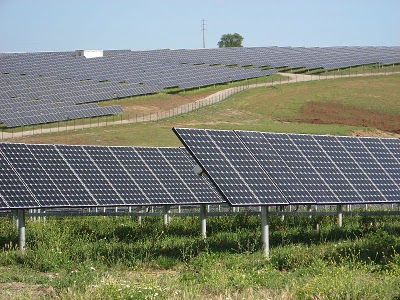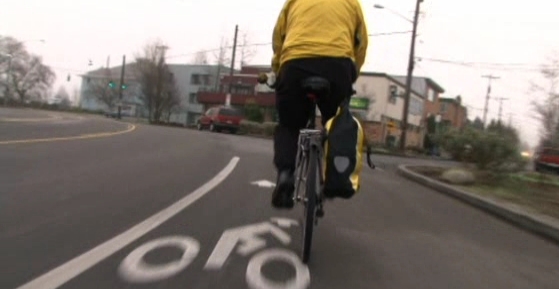
When it comes to energy produced per area of food cropland usurped, corn ethanol and soy biodiesel are the worst options available. If you want to obtain energy from the sun, your best option is to grow a crop of solar panels.
The solar farm above covers 150 acres. It nets sixty times more BTUs of energy per year than a corn crop used for ethanol and about 120 times more than a soy crop used for biodiesel. And you could still graze livestock around these panels to keep the weeds down. From a land use perspective, siting these on farmland is certainly suboptimal, but not nearly as suboptimal as converting food stock into liquid fuels.
I received an email the other day from someone who is an expert on certain market impacts of government policy:
The Connecticut General Assembly last week passed a bill requiring biodiesel to be blended with heating oil starting next year.(1)
He was perplexed by one of the provisions in this bill:
Before the mandate takes effect, the state commissioner of consumer protection, in consultation with a Distillate Advisory Board to be created under this bill, will determine whether there’s enough in-state production of biodiesel to comply with the legislation.
Biofuel issues usually revolve around transportation because the portability and energy density of liquid fuels are best suited for things that move around. In this case it involves homes that use oil for heating. It makes no sense, environmentally or economically, for state governments to force citizens to purchase biofuels regardless of cost. If biodiesel cost less, consumers would already be using it. In the summer of 2008 biodiesel was selling for $6 a gallon. This is essentially a hidden tax on citizens and a form of wealth redistribution to farmers. Biofuel lobbyists have obviously gotten the ear of some politicians.
No politician would dream of increasing taxes at this point in time to fund something like this. So, instead, the cost is hidden in consumer fuel bills.
If global warming is the real concern, there is much more bang for the buck in solar or even better yet, home weatherization.
Connecticut is not known as an agricultural powerhouse, so this does not make a whole lot of sense the way it might in corn and soy growing states, where such legislation is being used by politicians to buy votes. The public is largely unaware of the futility and wastefulness of trying to displace oil by turning food into a liquid fuel.
Maria Cantwell recently introduced legislation in my home state to reinstate the dollar per gallon blending subsidy for biodiesel to placate the biodiesel refinery here. A back-room deal was struck where they would pretend to use oil grown in Washington State instead of importing the cheapest oil as the original business plan dictated (and why it is built on a port).
I recently attended a talk sponsored by the Northwest Biodiesel Board. An Eastern Washington professor, who was raised on a farm and had attempted his own biodiesel business, explained that politicians had not considered the Washington State farmer’s ability to competitively grow corn and soy. The climate here favors other higher value crops like apples and cherries.
Originally posted on Biodiversivist


